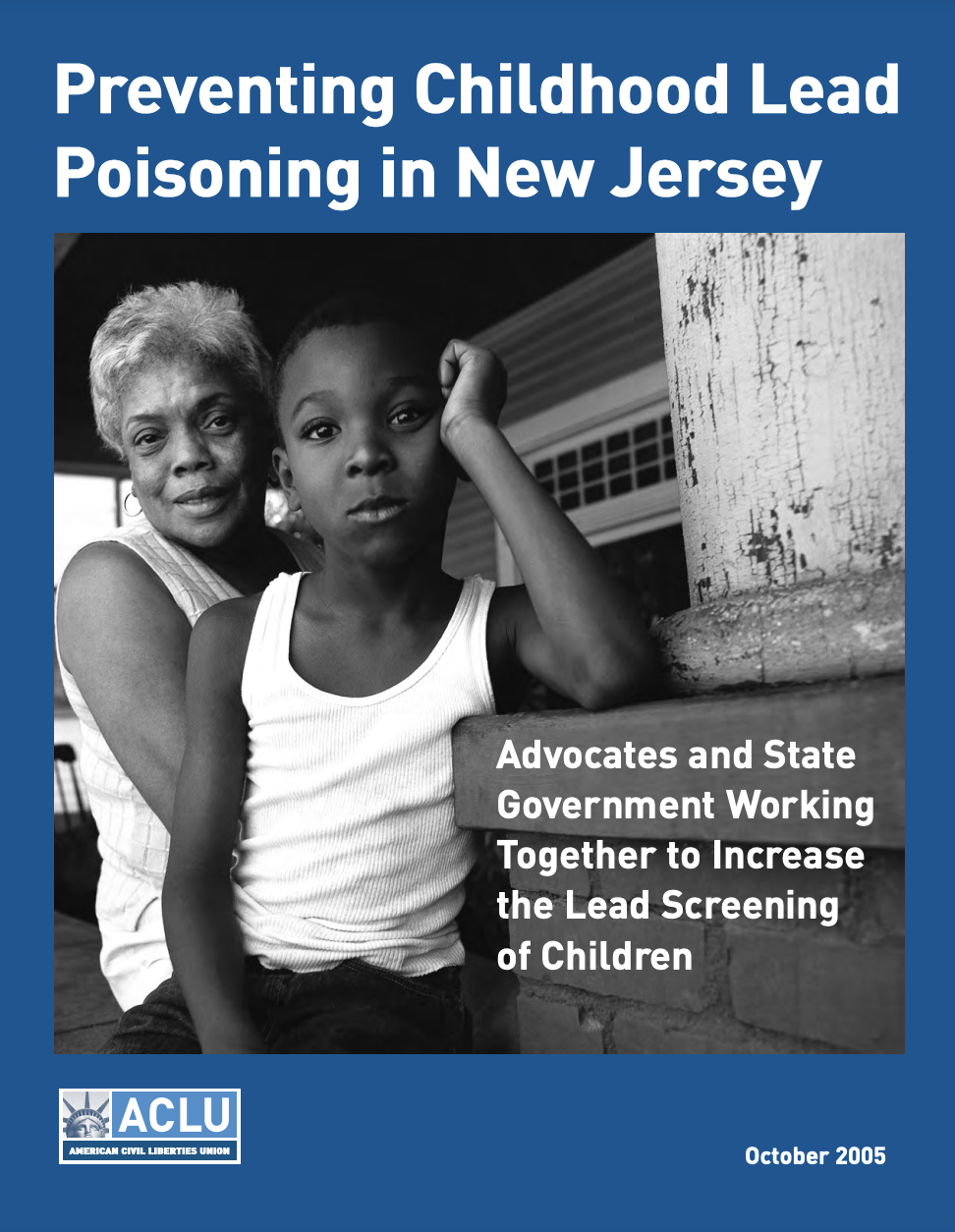Jersey Water Works recognizes that not only modern, robust water infrastructure but also an informed public are crucial for the health of our children, our communities and ultimately our economy.
The following lead resources provide information about steps federal, state and city governments, and water utilities, are taking to limit lead exposure from drinking water.
Additional Data and Statistical Analysis May Enhance EPA’s Oversight of the Lead and Copper Rule (US GAO)
GAO makes three recommendations, as part of its report, including for EPA to require states to report data on lead pipes and develop a statistical analysis on the likelihood of LCR violations to supplement its current oversight. EPA agreed with GAO’s recommendations.
10 Policies to Prevent and Respond to Childhood Lead Exposure (The Health Impact Project)
This report produced by The Health Impact Project, a collaboration of The Pew Charitable Trusts and the Robert Wood Johnson Foundation, assesses the implications of childhood lead exposure and performs a cost-benefit analysis of various key federal, state, and local policy solutions.
Flyer for School Children (Camden County Municipal Utilities Authority)
The Camden County Municipal Utilities Authority sent this one-page flyer to all 11,000 Camden City school children and school staff, along with refrigerator magnets and the NJ Dept. of Health fact sheet, “Drinking Water: Lead”. For more information or replicable artwork for the magnet, contact CCMUA Director Scott Schreiber at (856) 541-5200.
Federal and State Lawmakers Take On Issue of Lead Testing (NJ School Boards Association)
New federal and state bills have been introduced to improve funding for lead testing in public schools in New Jersey. The Transparent Environment in School Testing (TEST) for Lead Act will require states to help schools test for lead if they receive federal funding. State legislation proposed recently in New Jersey would require every school to conduct periodic and uniform drinking water testing. April 2016.
Protecting New Jerseyans from Lead in Water (NJ DEP)
This fact sheet by the New Jersey Department of Environmental Protection answers frequently asked questions about what the government is doing to protect people from lead contamination in their water.
Preventing Childhood Lead Poisoning in NJ (ACLU)
This American Civil Liberties Union report highlights the problem of lead poisoning in New Jersey particularly for children in lower income and minority families and historical failings that have contributed to this crisis. It discusses the results of programs implemented in these communities to increase awareness and screening as well as future recommendations to continue to decrease instances childhood lead poisoning. 2005.
Controlling Lead in Drinking Water for Schools and Day Care Facilities: A Summary of State Programs (EPA)
This Environmental Protection Agency (EPA) report looks at the history of federal legislation to control lead in school drinking water as well as describing state programs. It highlights future needs for collaboration between the EPA, other federal agencies, state governments, and water utilities to generate funding and develop sampling and remediation plans for school districts. July 2004.
Lead Service Line Replacement Collaborative (LSLR)
The Lead Service Line Replacement collaborative’s goal is to accelerate voluntary lead service line replacement in communities across the United States. This site provides information to help communities facilitate full LSL replacement.
